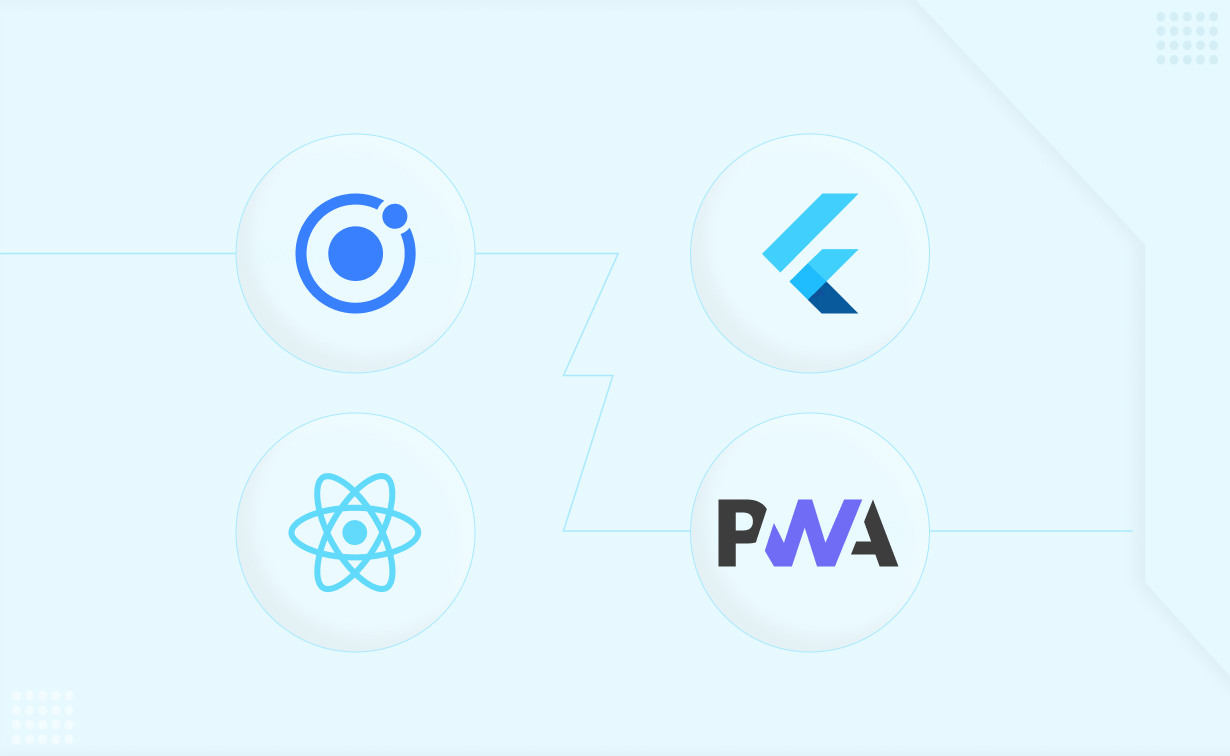Ionic vs. Other Frameworks: A Deep Dive into Mobile App Development
 TechnBrains
TechnBrains
In the ever-expanding universe of mobile app development, the choice of a framework is akin to selecting the DNA for your digital creation. With a plethora of options available, app developers find themselves at a crossroads, weighing the pros and cons of each contender. In this article, we embark on a comprehensive journey, dissecting the nuances of Ionic and pitting it against other frameworks like Flutter and React Native.
A Glimpse of Framework Dynamics
Before we dive into the intricacies, let's understand the landscape. Ionic, a stalwart in cross-platform development, stands tall with its roots deeply embedded in web technologies like HTML, CSS, and JavaScript. Flutter, the brainchild of Google, flaunts a UI toolkit that dances elegantly across iOS and Android platforms using Dart. React Native, Facebook's prodigy, embraces JavaScript and the React library to weave a unified codebase for iOS and Android.
A Fact-Driven Prelude
Let's set the stage with a fact check. According to Stack Overflow's Developer Survey 2022, Ionic has not only secured its position but is witnessing a surge in popularity, making it a force to be reckoned with. Now, armed with this fact, let's unravel the layers of performance, ecosystem, and developer affinity.
The Performance Symphony: Ionic in the Limelight
Performance, the heartbeat of mobile applications, takes centre stage in our analysis. Hybrid mobile applications, a realm where platforms fade into insignificance, hinge on the shoulders of performance. Enter Ionic, offering a solution that transcends platforms and delivers a seamless user experience.
Performance Metrics Unveiled
Poor app performance is akin to a death knell in the competitive app market. Factors such as network strength, function speed, responsiveness, loading time, execution, and user interface dictate the app's fate. In this backdrop, the solution lies in the realm of hybrid app development.
Hybrid App Development: A Panacea for Performance Woes
The cross-platform mobile app development frameworks, the knights in shining armour, stand ready to make applications user-friendly, dynamic, faster, and responsive. Among these frameworks, Ionic emerges as a beacon, leveraging web technologies like CSS, JavaScript, and HTML to deliver a superior performance.
The Dance of Programming Languages: Ionic vs. React Native vs. Flutter
Diving into the technical depths, the programming language becomes a pivotal factor. React Native waltzes with JavaScript and React Library, crafting native experiences for both iOS and Android. Flutter, with its distinctive dance, employs Dart to orchestrate seamless experiences across platforms. But in this linguistic ballet, Ionic stands out, embracing the familiar web trio of CSS, HTML, and JavaScript.
Programming Language Showdown
While Dart has garnered support and community interest, the versatility of web technologies places Ionic in the spotlight. Pairing them with Cordova plugins, Ionic seamlessly integrates applications into native containers, ensuring compatibility and flexibility.
Community Support: The Backbone of Development
In the realm of frameworks, community support is the invisible force that propels development. Dart, the language Flutter embraces, has seen a surge in interest, attracting developers from diverse corners of the globe. Yet, Ionic, with its foundation in AngularJS, boasts a robust and experienced community that rivals even the stalwart React Native.
Community Resilience: Ionic's Fortitude
Community support goes beyond numbers. It's about quick solutions, collaborative problem-solving, and regular updates. Ionic, with its six-year legacy, stands as a testament to the strength of community resilience, offering a foundation for developers to build upon.
Performance Quality: Ionic's Grand Finale
As the curtains draw near, we revisit the stage of performance, focusing on runtime considerations. React Native delivers the native look and feel, Flutter relies on Dart's potential with room for improvement, but Ionic emerges as the victor. Its performance quality, a result of leveraging web technologies and third-party packages, positions it as the go-to choice for many developers.
A Grand Performance: Ionic's Superiority
In the grand symphony of Ionic vs. React Native vs. Flutter, Ionic takes the lead with its superior performance. The use of web technologies, an extensive library of UI components, and a robust community make it a reliable choice for high-performing mobile applications.
Choosing the Right Platform: A Coda for Developers
The age-old dilemma of choosing the right platform persists. React Native holds popularity, but Ionic, in a short span, has gained momentum, especially among web and mobile app developers. The decision ultimately hinges on project requirements, developer expertise, and the siren call of performance.
Expert Advice: Stick to Popularity
Experts often advocate for sticking to popular platforms for app development. While React Native remains a popular choice, Ionic's rapid ascent in popularity, especially among mobile and web app developers, cannot be ignored.
Final Thoughts
In the dynamic landscape of mobile app development, the choice between Ionic, Flutter, and React Native is a pivotal decision. Each framework adds a unique brushstroke to the canvas of development, and the artistry lies in choosing the right one. As the industry evolves, the trio continues to shape the future of mobile development.
FAQs
Q1: Can Ionic be used with languages other than JavaScript?
Ionic primarily leverages JavaScript, but it can be extended to use TypeScript for enhanced type-checking and autocompletion.
Q2: How does community support impact the choice of a framework?
Community support is crucial for quick problem-solving and updates. Ionic, with its robust community, offers a resilient foundation for developers.
Q3: What makes performance a critical factor in app development?
Poor app performance can lead to quick uninstallation and replacement, impacting user retention and revenue.
Q4: How does Ionic integrate applications into native containers?
Ionic achieves this by leveraging web technologies like CSS, HTML, and JavaScript, paired with Cordova plugins for seamless integration.
Q5: Where can I find resources to learn more about Ionic, Flutter, and React Native?
Explore the official documentation, online tutorials, and community forums for each framework to delve into in-depth learning resources.
Subscribe to my newsletter
Read articles from TechnBrains directly inside your inbox. Subscribe to the newsletter, and don't miss out.
Written by

TechnBrains
TechnBrains
TechnBrains is a Custom Software Development and Mobile Application development company based in Texas building high-quality mobile apps for IOS and Android and responsive web designs for driving success